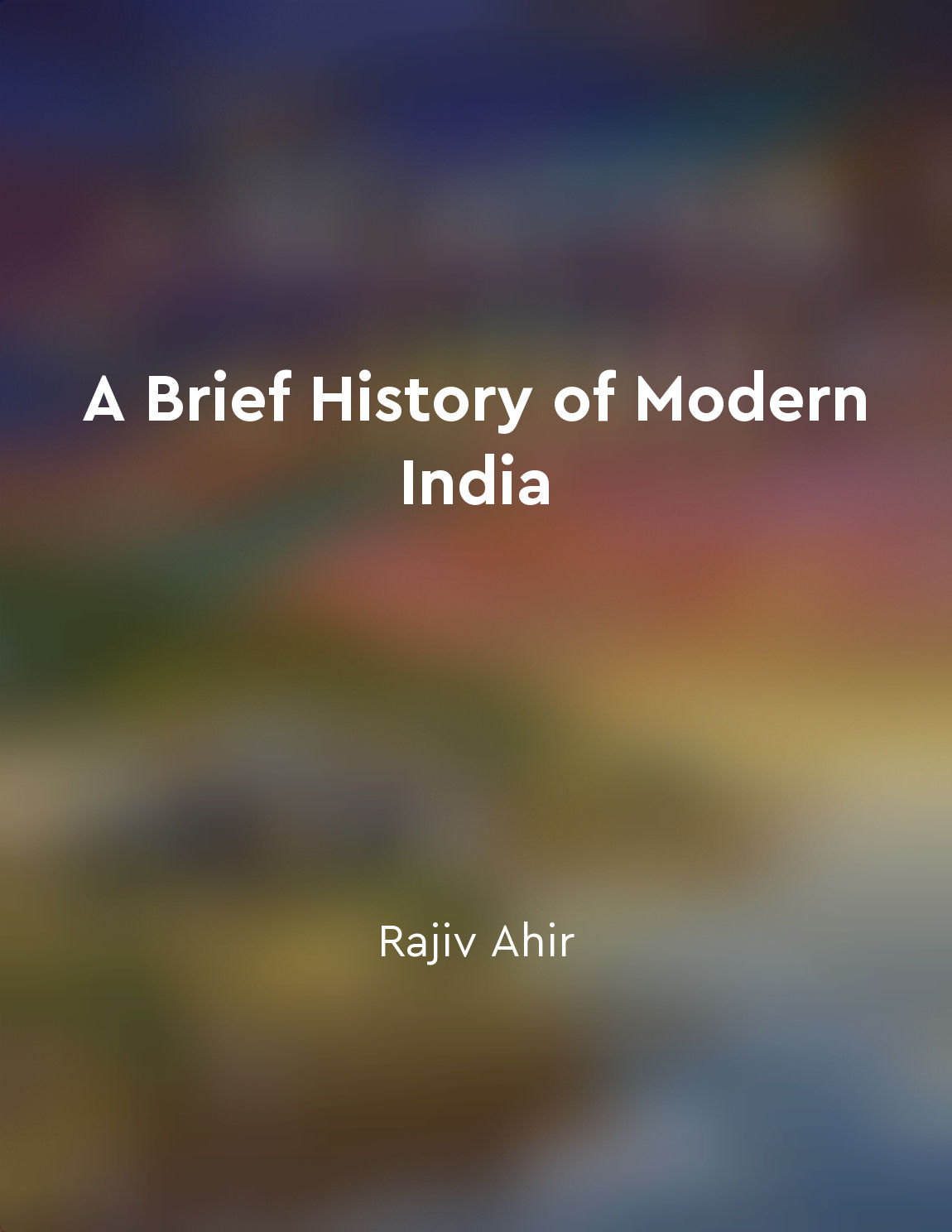The independence movements in South Asia paved the way for decolonization from "summary" of South Asia in World History by Marc Jason Gilbert
The independence movements in South Asia were instrumental in setting the stage for decolonization in the region. These movements, characterized by widespread protests, civil disobedience, and acts of resistance, were driven by a strong sense of nationalism and a desire for self-determination. South Asia, under British colonial rule for nearly two centuries, faced various challenges including economic exploitation, cultural suppression, and political marginalization. The people of South Asia, however, were not passive recipients of colonial rule; they actively resisted and challenged the British authority through organized movements and campaigns. One of the most significant independence movements in South Asia was the Indian independence movement led by figures such as Mahatma Gandhi, Jawaharlal Nehru, and Subhas Chandra Bose. Through nonviolent protests, boycotts, and civil disobedience, the Indian National Congress and other nationalist groups were able to mobilize mass support and challenge the legitimacy of British rule. Similarly, in other parts of South Asia such as present-day Pakistan, Bangladesh, and Sri Lanka, independence movements emerged with their own unique characteristics and leaders. These movements were united in their goal of liberating their respective countries from colonial rule and establishing independent nations based on principles of democracy, freedom, and equality. The success of the independence movements in South Asia had far-reaching implications not only for the region but also for the broader global context of decolonization. The struggles and sacrifices of the people of South Asia inspired and influenced independence movements in other colonized regions around the world, leading to a wave of decolonization in the mid-20th century.- The independence movements in South Asia played a pivotal role in paving the way for decolonization by challenging colonial authority, mobilizing mass support, and inspiring similar movements globally. The legacy of these movements continues to be felt in the region and serves as a reminder of the power of collective action and the enduring quest for freedom and self-determination.
Similar Posts
Practice simplicity and moderation
Gandhi believed in living a simple and moderate life. He practiced what he preached, choosing to wear simple clothes and live a...
Suppression of Indian voices
The suppression of Indian voices was a key aspect of British colonial rule in India. The British sought to control and silence ...

Kargil war with Pakistan
The Kargil war with Pakistan in 1999 was a significant event in the history of modern India. It was a conflict that took place ...

Bofors scandal and corruption in politics
The Bofors scandal emerged as a significant episode in the realm of Indian politics during the late 1980s. It involved allegati...

Women empowerment and gender equality
The concept of women empowerment and gender equality has been a significant focus in the history of modern India. It encompasse...
Resistance to British policies
The resistance to British policies in India was a crucial aspect of the struggle for independence. This resistance was not a su...
The Indian subcontinent has played a significant role in shaping world history
The Indian subcontinent, with its vast geographical expanse and rich cultural heritage, has indeed left an indelible mark on wo...

